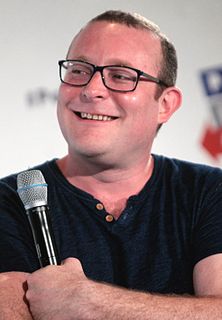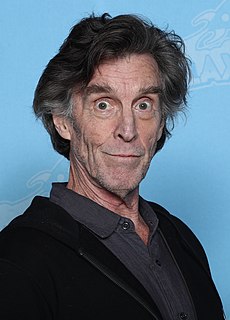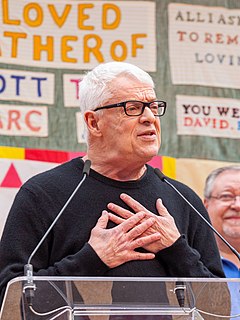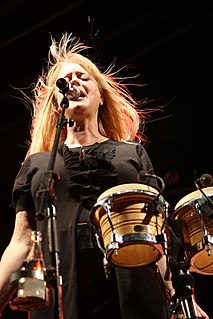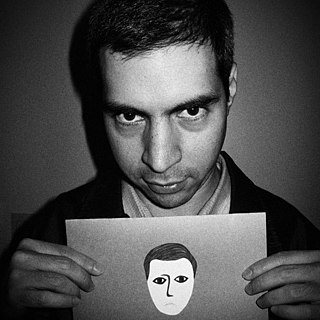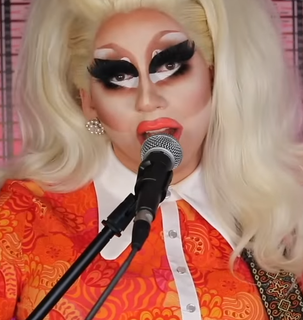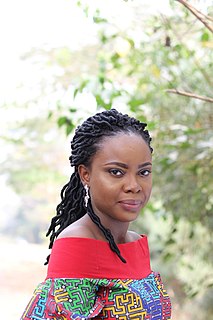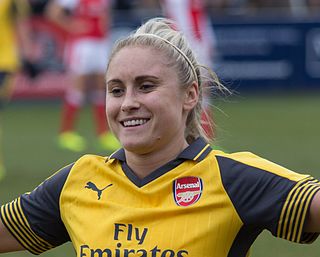A Quote by James Adomian
I think we're realizing that gay people are able to do the type of comedy that we just assumed was for straight people over the years. Whatever old boundaries there were, which were very real and still have an effect on us, in the way we socialize, I think that's slowly becoming less important.
Related Quotes
The ball scene was never really only gay people. I think people have this notion that if there's a man hanging around a gay man, he must be gay, but that's just stigma. Back in the day, it was the same; there were lots of different people there: gay, straight, whatever. They did not care what they were called because they knew who they were.
Back in Kansas City, I associated Harvard with sort of gnarly guys who wore capes for effect in a kind of Oscar Wilde scene. Even though I also knew there was such a thing as the Harvard-Yale game, I was still a little surprised that Harvard had a football team. I just assumed if there were such a thing as gay people, that they were nothing like us. Little did I know that probably half the swim team at Yale was gay.
I'm certainly not going to tell other people what they should do with their own personal lives. I think it's certainly easier for a director to be out. The public is not going to see a movie because the director is gay or straight. It's maybe a little harder for an actor or actress because of, you know, the love roles and stuff. But gay people have been impersonating heteros in the movies for years. So, hopefully, that is becoming less of an issue. I think it would have been really great if a gay person had played a gay person. That's brave!
Obviously I think it's really important to look back at your history, and that's why I think things like Pride are important. It's not necessarily about your experience of life, it's not about whether you find it difficult to be gay; it's about the fact that people have fought over hundreds of years for this to be okay, and also that there are many countries in the world where it's still not, and it's very dangerous to be gay.
A lot of people write and tell us what The B-52s meant to them - straight, straight-A students, those who were a little awkward, weren't always the ones who fit in. People have told us that just having us and our music was beyond important and really made me feel that what we were doing was worth something big.
The years between leaving school and actually becoming an adult are very important years. You make a lot of choices as to the type of life you want to lead and what type of person you want to be. There were so many people who had opinions of me, a lot of them very unflattering, that it was hard to make up my mind about who I was supposed to be.
There is no difference between alternative and traditional club comedy. People think there's a difference, but I don't think so. It's like gay men versus straight men. There's no difference. They both like sucking penises. But truth be told, I don't even believe alternative comedy is a real thing anymore. I think at this point, it's just a buzz word to make things seem cool and different and hip.
I think these last 10 years have seen just a huge shift in the psyche of this country as regards gay people. I think AIDS had a lot to do with it. So many families who really believed they'd 'never met one' were suddenly confronted with their sons becoming ill, and friends of sons. I think that brought a lot of it into the open.
I'm still very interested in the things that happened in the '80s and the '70s because I think that they were very important years for Nigeria. In the '80s, we were under a military dictatorship for quite a while, and I think that the way we engage with our country as citizens was shaped in many ways by the events that took place in that time.
[Marla, Shar and I] all have had very public breakups, so I think people know they can relate with us in one way or another. And this is one of the few reality shows where they didn't have the cameras right in people's faces. Like when we were sitting around the table talking with the divorced people, the cameras were way back. And we just listened. Sometimes people just need an ear.
